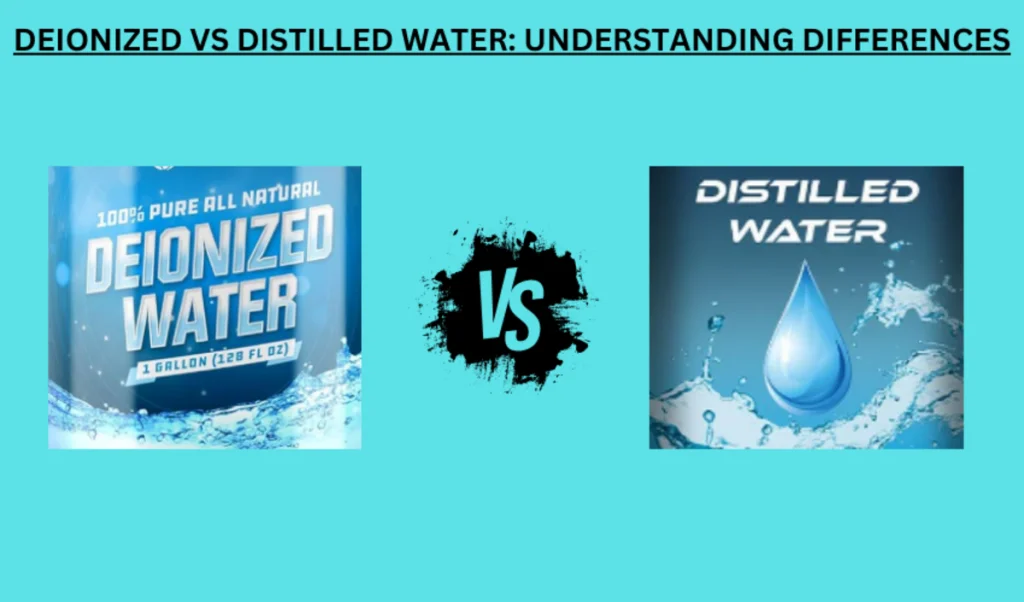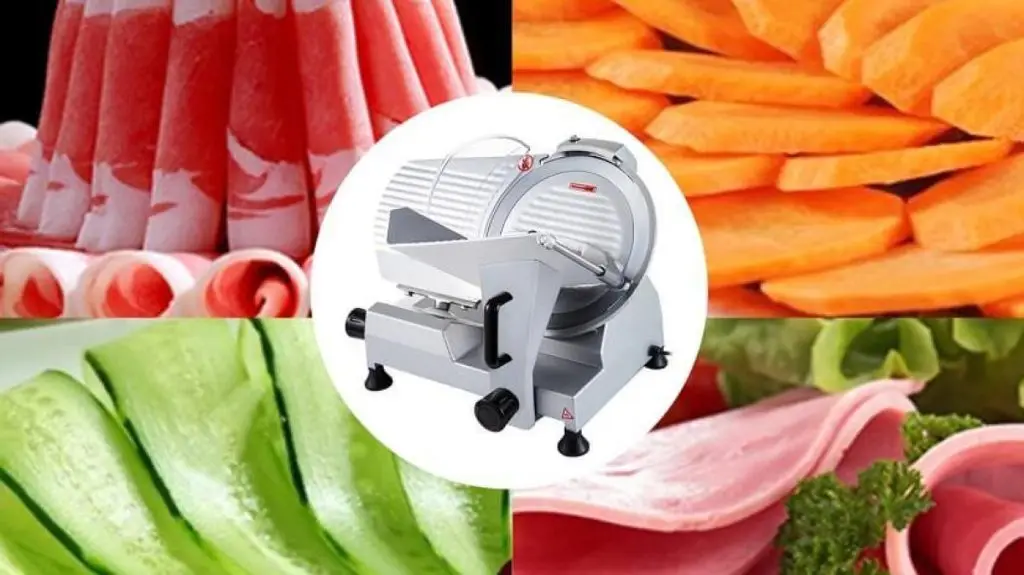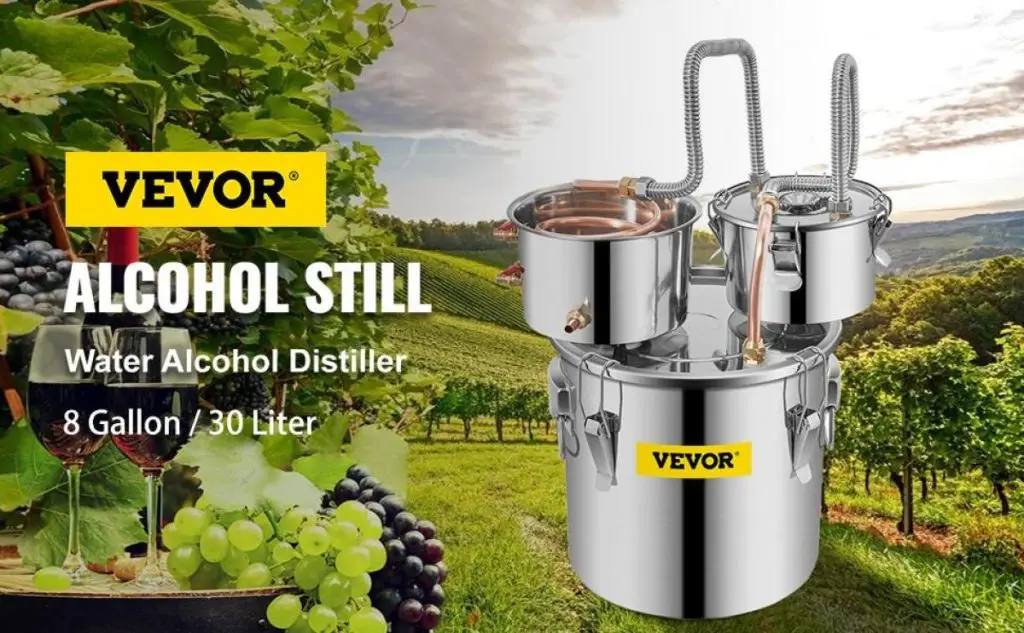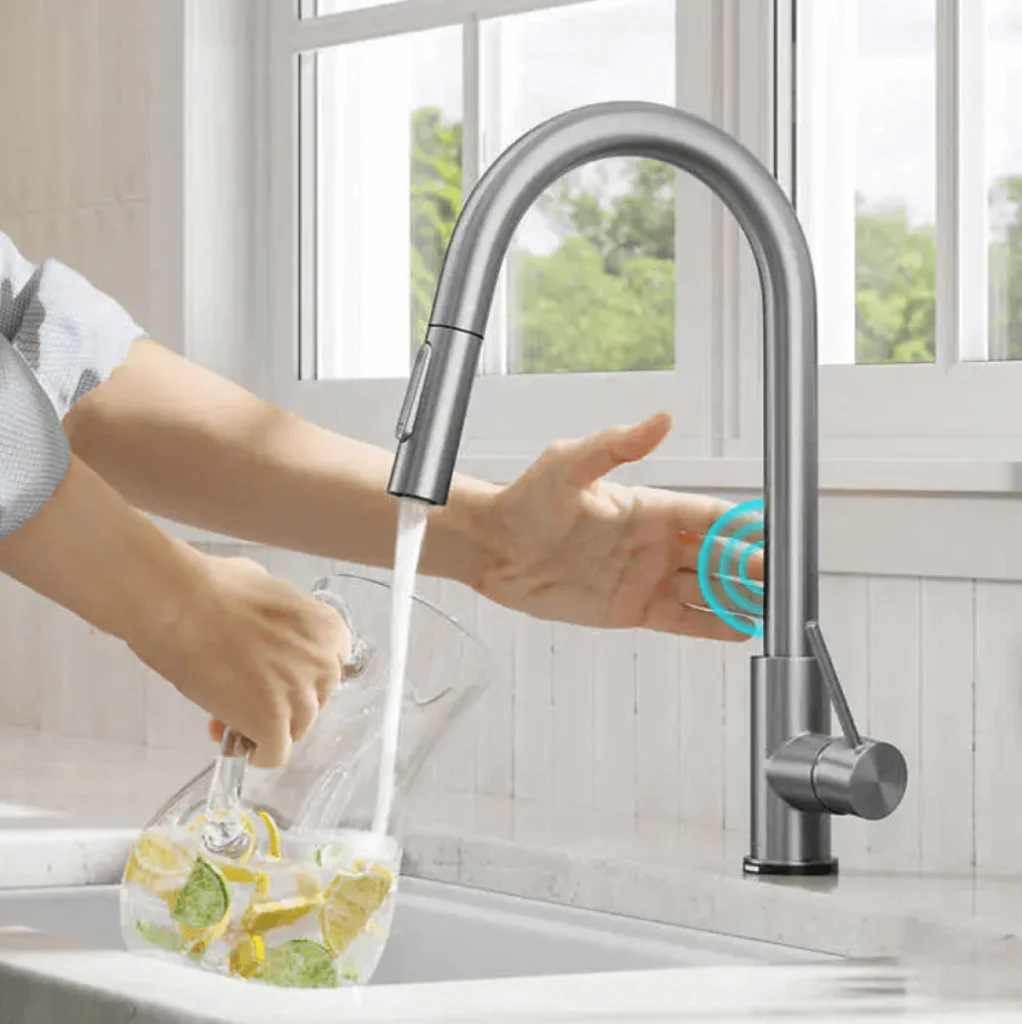Introduction
Are you confused by the distinction between deionized vs distilled water? Knowledge of these differences is of great importance for many applications. Uncertainty about their differences may result in the wrong decisions in the areas of industrial, laboratory, and everyday life. For example, you might encounter problems such as inefficient cleaning, incorrect chemical reactions or equipment failures. Dive into this guide to get a good grip on the distinction between deionized and distilled water so that you can make an informed decision.
Table of contents
Deionized Water
Deionized water is produced by an ion exchange technique, whereby the charged particles, such as ions, are removed. This purification process ensures high levels of purity; therefore, it can be used for industrial and laboratory purposes.
A. Removal of ions and impurities
At ion exchange, however, the charged ions are replaced with hydrogen and hydroxyl ions thus achieving the removal of contaminants. This kind of procedure strips minerals, salts and other impurities, thereby producing very pure water.
B. Common applications:
Deionized water is an important ingredient for laboratories, pharmaceutical plants, electronics production facilities, and automobile assembly lines. It is vital for purifying processes, such as rinsing, dilution, and chemical synthesis, where the purity level needs to be high.
C. Advantages:
In terms of high-purity water, deionized water utilizes no ions or contaminants, which is essential for maintaining optimum performance in critical applications. Through its high level of versatility, it has become an invaluable tool for different industries that use high-precision experiments and manufacturing.
D. Limitations:
Deionized water is very pure, of course, but it’s easily recontaminated when exposed to air or surfaces. Likewise, the ion exchange process calls for the use of specific equipment and maintenance, thus increasing production costs.
Distilled Water
You can define distilled water as a water which contains no impurities and minerals. To get this type of water you need it to pass through distillation which involves water evaporation. Next you need to condense evaporated water again into liquid form. This liquid form is distilled water. You can also get insights into what is a water distiller?
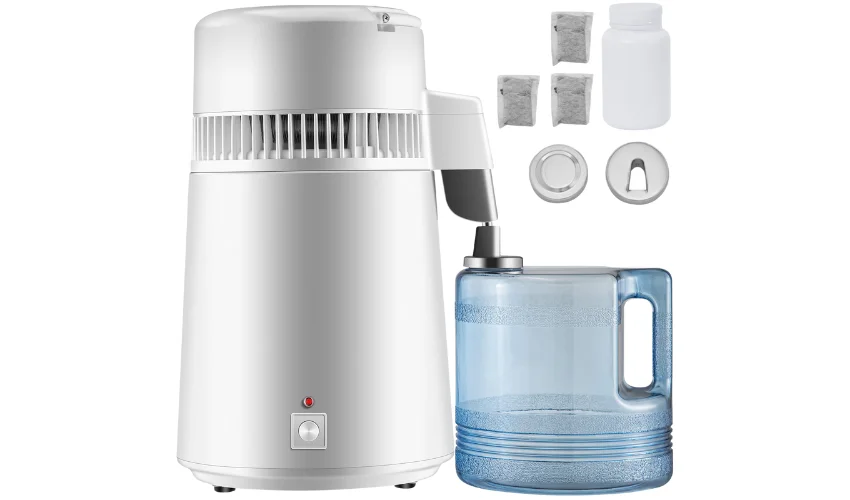
A. Removal of contaminants and minerals
This method of distillation leaves harmful contaminants, minerals, and other impurities behind, leading to very pure water with few dissolved substances in it.
B. Common applications:
Highly purified water is used in labs for various processes where there should be no competing molecules, in medical facilities for sterilization purposes and in automotive batteries to prevent corrosion.
C. Advantages:
The main feature of distilled water is its purity, which gives you the benefit of using it for sensitive applications in which even minute contamination could cause problems. Lastly, it is easily accessible and affordably priced.
D. Limitations:
The distillation process could be the main source of removing useful minerals together with impurities, giving distilled water a flat taste. Besides, the consumption of large amounts of energy is inherent in the process of continuous distillation, unlike other methods that are environmentally friendly.
Comparison of Deionized vs Distilled Water
Uncover insights on key differences between deionized vs distilled water right below:
A. Differences in production methods
Deionized Water:
Deionized water is produced via an ion exchange process. Water moves through ion exchange materials that grab and remove ions like calcium, magnesium, sodium or chloride. Through this process, the water becomes pretty pure, making it almost free from most impurities.
Distilled Water:
The water that is distilled is a product of the distillation process. This kind of method involves boiling water, which results in vaporization of water. The vapor will be condensed again into liquid form afterward, which will leave behind contaminants and impurities. This procedure actually involves minerals, chemicals, and other pollutants.
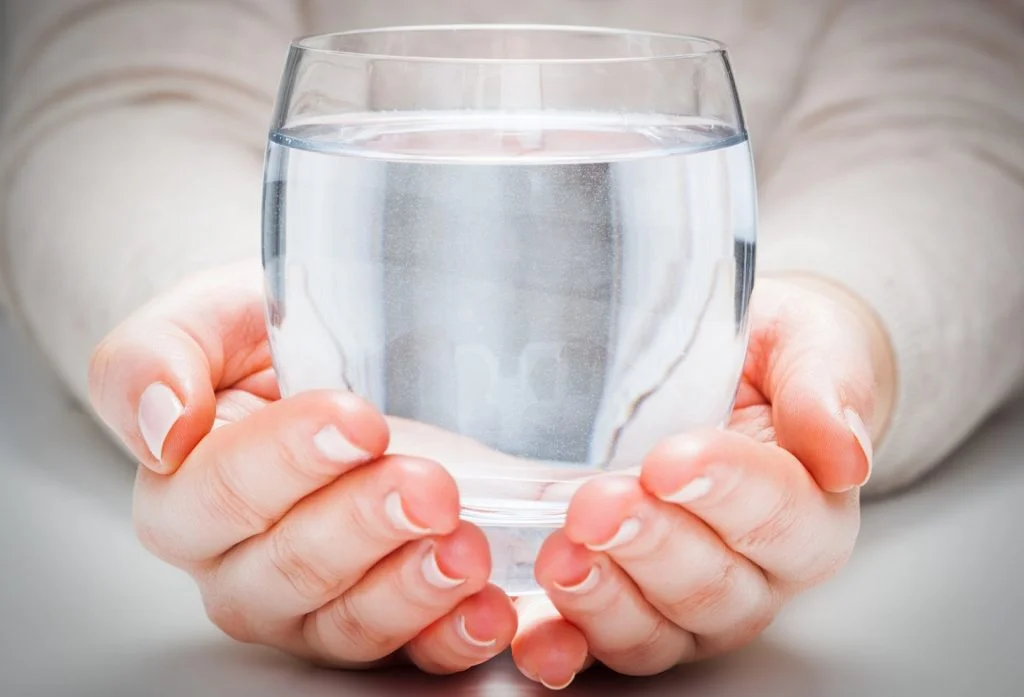
B. Variations in purity levels
Deionized Water:
Deionized water is very pure since most ions are depleted during the ion exchange mechanism. However, in such cases, trace amounts of some contaminants may still be present if low-quality ion exchange resins are used.
Distilled Water:
In the same vein, distilled water is also very pure since the distillation process removes all kinds of impurities. It is recognized as purest form of water which contains minimal contaminants.
C. Chemical composition and uses
Deionized Water:
Deionized water contains almost only H2O molecules with most ions removed making it suitable for such uses as laboratory experiments, pharmaceutical production, and electronics manufacturing. It is usually applied in cases where ions can affect processes and destroy devices.
Distilled Water:
Pure water is made up of only molecules of water (H2O), without minerals or pollutants. It is a widely used tool in lab tests, medical procedures, and devices such as a steam iron and a humidifier. Apart from being incorporated in automotive cooling systems and lead-acid batteries, distilled water is also used to prevent minerals deposit and corrosion.
D. Cost-effectiveness:
Deionized Water:
The cost of ion exchange resins and equipment maintenance makes deionized water production costlier than other purification methods. On the other hand, the expense for industries that require filtered water is often due to its high quality.
Distilled Water:
Distillation is energy-consuming hence expensive to produce as compared to other purification techniques. However, the simplicity of the distillation procedure and the general availability of distillation apparatus make it possible to obtain distilled water at a relatively low cost in many cases.
E. Environmental Impact:
Deionized Water:
The production of drinking water with the deionization process often requires chemicals for ion exchange resin regeneration. Such pollution may occur if the chemicals are not managed properly. Moreover, the disposal of the used ion exchange resins is among the environmental problems.
Distilled Water:
The distillation process requires energy for heating and vaporizing, and by so doing, the environmental implications are drawn, especially if fossil fuels are used for energy generation. Even though distillation has no wastewater or chemical by-products, it is generally considered to be a rather eco-friendly purification process.
F. Health Considerations:
Deionized Water:
Deionized water remains safe for drinking since ion removal does not impact its chemical stability or taste. However, it does not contain minerals that are beneficial for the body, so it is probably not the best option for long-term consumption.
Distilled Water:
The distilled water is not only a safe drink but also because the distillation process thoroughly eliminates the impurities. Though others view mineral deficiencies as a possible result of regular distilled water intake, the truth is it has no essential minerals contained in natural water sources.
Factors Affecting Choice Between deionized vs distilled water
Different factors impact the choice of deionized vs distilled water. Note down these factors:
A. Specific requirements of applications
Weigh the task’s needs. Deionized water is useful in applications where high purity is expected, such as electronics manufacturing. Distilled water is more suitable for comparison experiments that don’t need the impurities. Analyze your application’s purity requirements to select the appropriate type.
B. Accessibility and availability:
Evaluate what’s accessible. Deionized water could be more accessible in the industry, whereas distilled water could be bought in the shops. Local supplier checks can make procurement easier.
C. Cost considerations:
Think about your budget. The creation of deionized water can be costly due to the price of equipment and its maintenance. Distilled water may be suitable for smaller-scale needs at a lower price. Balance the costs with your necessities.
D. Environmental concerns:
Consider eco-impact. Deionization is known to use chemical regeneration, which has a negative impact on the environment. Distillation is energy-consuming yet a less environmentally-damaging way of production. Identify which aligns the most with your environmental values.
E. Health and safety implications
Prioritize safety. Deionized water, although pure, may contain some chemicals used in its production. Purified water, which contains no harmful elements, is safer to use, particularly in the pharmacy and food business. Health and safety should be the main criteria when choosing.
Water Distiller for Efficient Water Purification
The following section throws light on best-in-class water distiller products for your consideration:
VEVOR 0.3G/H Water Distiller
Easy water purification with the VEVOR 1.1 Gal Water Distiller. Its 750W heating element generates 0.3 Gal (1 L) per hour of clear water pure from solids, VOCs and impurities. It is versatile as it is used to make both alcohol and essential oils. It is right for houses, offices, labs, and dental clinics. The new timing function has been designed for a constant temperature – 3.5 hours for a 1.1 Gal (4 L) wash – that will minimize scale formation. Regulate the process using the convenient temperature display to reach “dry-burning” heating. It is made from food-grade 304 stainless steel, has a tough glass carafe, and has fast heat dissipation. Consists of cleaning powder and carbon cartridges for easy cleaning and increased water purity.
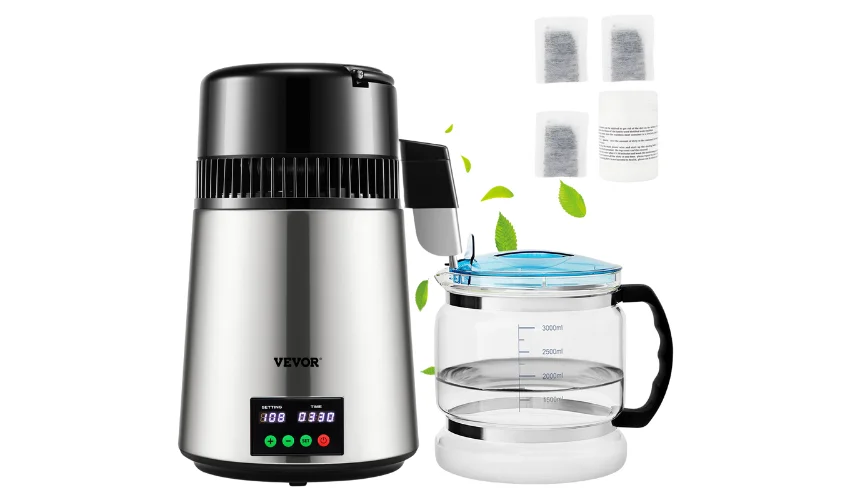
VEVOR 4L Water Distiller
VEVOR 4L Water Distiller is your ultimate choice for clean water; you just need it. With 1750-watt heating element, you can get 1.5 liters of distilled water per hour. It is not only for water. It is multi-purpose and can make alcohol and essential oils. Therefore, it is a must-have for homes, offices, labs and dental clinics. The updated timing function permits exact adjustments for different applications. Showing a dual-temperature display and durable stainless steel body, it serves for uninterrupted operation and long service life. In addition, with user-friendly accessories as part of the package, the maintenance process is effortless, resulting in continued purity.
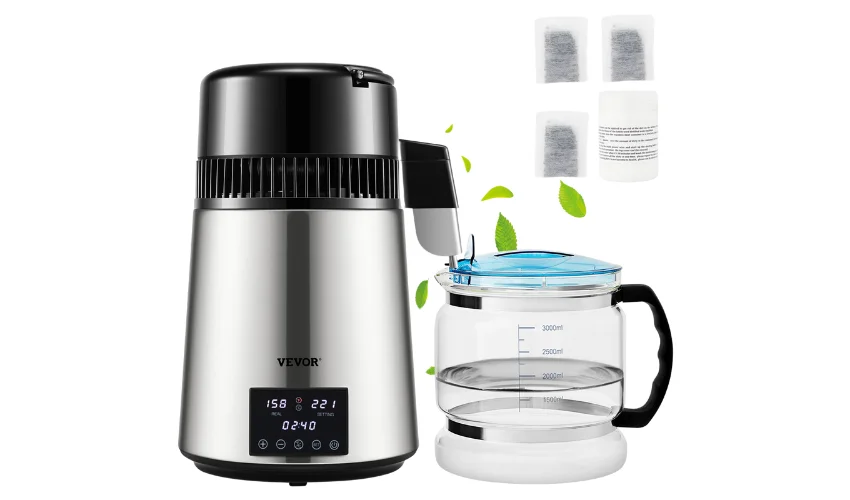
Keep reading to uncover information on 5 best water distillers of 2024.
FAQs
The following FAQs will further clarify the concept between deionized vs distilled water:
Which is more expensive, distilled or deionized water?
Water that has been distilled usually costs more than deionized water because the distillation process is energy-demanding. Deionization is a relatively simpler and cost-efficient process that makes deionized water more economical for some applications.
Is RO and DI water the same?
RO water and DI water are not the same. RO filtering out impurities through a semi-permeable membrane, and DI, with the help of ion-exchange resins, removes the ions, is the main purpose of both processes. What each method treats is different, which leads to various levels of water purity and quality.
Can I use deionized water instead of distilled water?
For the situation, the answer is yes. Both of them go through purification mechanisms to bring out their full purity. However, distilled water is purer than the deionized water. For demands with exceptional purity, you can use distilled water over deionized water.
Is Deionized water 100% pure?
Yes, deionized water is 100% pure. You can take an idea about the purity of the deionized water as you can use it without any doubt in scientific experiments. It allows you to get dependable and predictable results.
Conclusion
In the end, the differences between deionized and distilled water are important to know. Through the selection of an effective water distiller, you can be sure of the safety and purity of your water source. Ensure your safety by making an informed decision. Think about VEVOR water distiller to always obtain reliable water distillation options. Their distillers are the quality and efficiency that you can really trust. Act today to protect clean water for you and your family. Don’t compromise on purity. Invest in VEVOR water distiller now, and rest assured, knowing that you’re doing the right thing both for your health and welfare.

